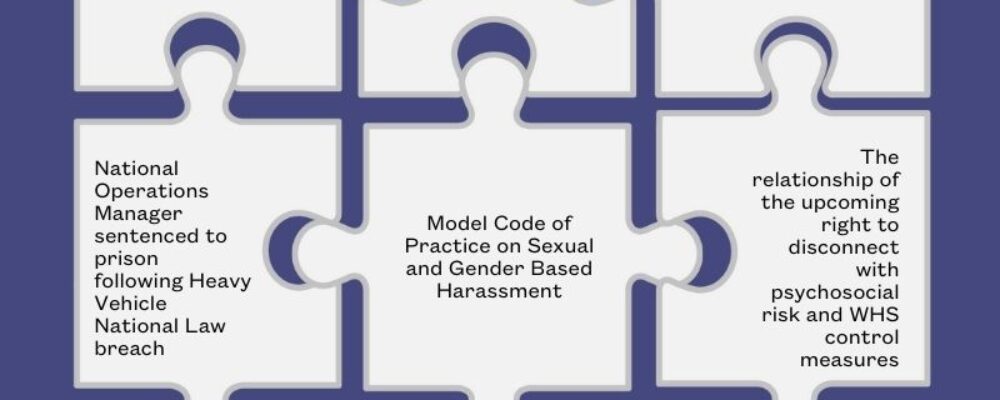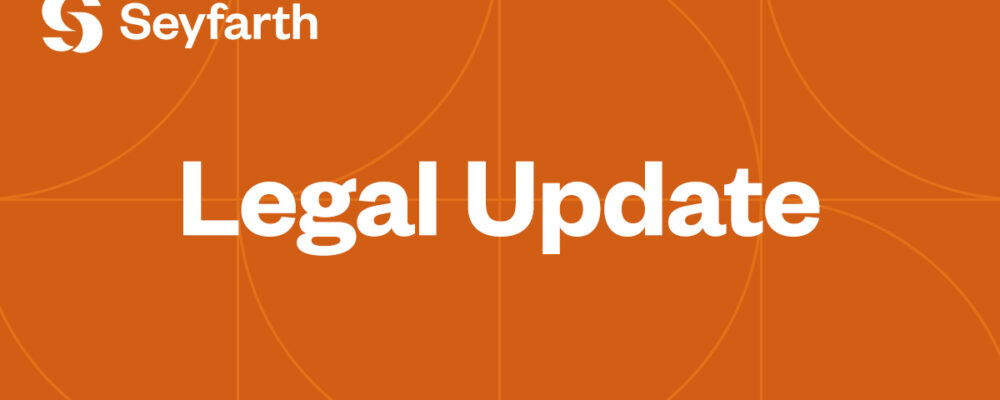Seyfarth Synopsis: A pending bill in New Jersey’s legislature would significantly lower the standard for establishing harassment claims and require employers to implement anti-harassment training and policies and report complaint data to a government agency.
Earlier this year, New Jersey legislators introduced Assembly Bill 2443 (“AB 2443” or the “Bill”), which if passed, would significantly reduce the standard for harassment claims under the New Jersey Law Against Discrimination (“NJLAD”) and impose significant training, policy, and reporting requirements on employers.
If passed, New Jersey would follow states such as California, Maryland, and New York, who, in the recent years, have amended their anti-discrimination laws to include training requirements and more employee-friendly definitions.
Reduced Harassment Standard:
A stated intent of the Bill is to disavow the interpretation of the NJLAD standard for work environment harassment claims such as highlighted in (i) Clayton v. City of Atlantic City, a 2013 Third Circuit case in which the court held that an incident in which a supervisor intentionally grabbed an employee’s buttocks did not rise to the level of severe or pervasive conduct, and (ii) Godfrey v. Princeton Theological Seminary, a 2018 New Jersey Supreme Court case that held harassing conduct not directed at or witnessed by plaintiff cannot factor into the analysis of a hostile work environment claim.
The Bill makes clear that “[a] determination of whether the harassing conduct was sufficiently severe or pervasive to create an intimidating, hostile, or offensive work environment shall be based upon the totality of the circumstances” and provides that single incidents of harassment may be sufficiently severe to create a triable issue of fact regarding the existence of an intimidating, hostile, or offensive work environment. Notably, in making the determination of whether harassing conduct is sufficiently severe or pervasive, the proposed standard would include a consideration of whether a reasonable person in the complainant’s protected class would consider the conduct to be sufficiently severe or pervasive to alter the conditions of employment, provided that a complainant’s subjective responses to the harassing conduct shall be considered as part of the totality of the circumstances that are relevant to whether a reasonable person belonging to the same protected class would consider the conduct to be sufficiently severe or pervasive to alter the conditions of employment.
The Bill further provides that harassing conduct need not require physical contact to qualify as severe or pervasive but that it may include threats, abusive or offensive language, damage to or interference with personal property, or offensive written or verbal communications or comments, whether such conduct is of a sexual nature or otherwise.
Additionally, the Bill defines standards for assessing employer liability for hostile work environment harassment pursuant to a negligence theory by proposing that employers be held liable when its agents or supervisors, knew or should have known of the harassing conduct and failed to take appropriate preventive or corrective action and imputing liability to employers for the harassing conduct of non-employee when the employer or its agents or supervisors, knew or should have known of the conduct and failed to take appropriate preventive or corrective action. However, the Bill provides that “in reviewing cases involving the acts of non-employees, consideration shall be given to the extent of the entity’s control and any other responsibility that the entity may have with respect to the conduct of those non-employees.”
Finally, the Bill extends the protections of the NJLAD to cover domestic workers and extends the statute of limitations for filing complaints with the New Jersey Division on Civil Rights (“DCR”) from 180 days to 365 days from the alleged act of discrimination or from the discovery of the alleged act of discrimination.
Training, Written Policy and Reporting Requirement
The Bill also places administrative requirements upon employers. Covered employers would have to establish a written non-discrimination policy to prevent unlawful discrimination and harassment. The Bill tasks the DCR with developing a model policy that can be adopted by an employer with fewer than 50 employees and a second policy that applies specifically for employers of domestic workers.
The Bill also requires employers to provide interactive anti-discrimination and anti-harassment training to all employees and sets standards for the training. This training would be required within 90 days of initial hire and to all employees every two years.
Finally, the Bill requires employers with 50 or more employees to collect and annually report data to the DCR about the number of discrimination and harassment complaints received and the protected class or classes that each complainant alleged. The Bill provides that a form will be available for employer’s completion on the DCR’s website.
Key Takeaways for Employers
Though still pending, the proposal of AB 2443 only highlights the increased focus of cultural shifts within the workplace, especially around the #MeToo movement. New Jersey employers should remain updated on the pending proposal and make sure their harassment policies and training materials are up to date and compliant with New Jersey law.
Seyfarth will continue to monitor and report on developments of the Bill. In the meantime, please feel free to reach out to the authors of this alert, or your favorite Seyfarth attorney, if you have any questions.
“With approximately 900 lawyers across 17 offices, Seyfarth Shaw LLP provides advisory, litigation, and transactional legal services to clients worldwide.”
Please visit the firm link to site






